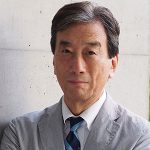GHIPP x JSIE Regional Crises management and Leadership
What is Crisis Simulation?
It is an active learning exercise, where participants will take part in a simulation of a regional crisis that may affect multiple nations in various ways. Participants play as teams for respective country roles, including Japan, China, the US and others. Each team representing a country will decide on various policies and responses, including how to deal with domestic constituents and international community based on their own national priorities and how to meet the ends by negotiating with other nations in bilateral and/or multilateral settings. The goal of the exercise is to give participants an appreciation for the complex issues of regional crisis in understanding how each nation would behave based on their national priorities, identifying obstacles and challenges through making of domestic emergency measures, and practicing leadership to come up with best agreed solutions.
★This program can be conducted on-demand basis. Please contact info@jsie.net for inquiries.


